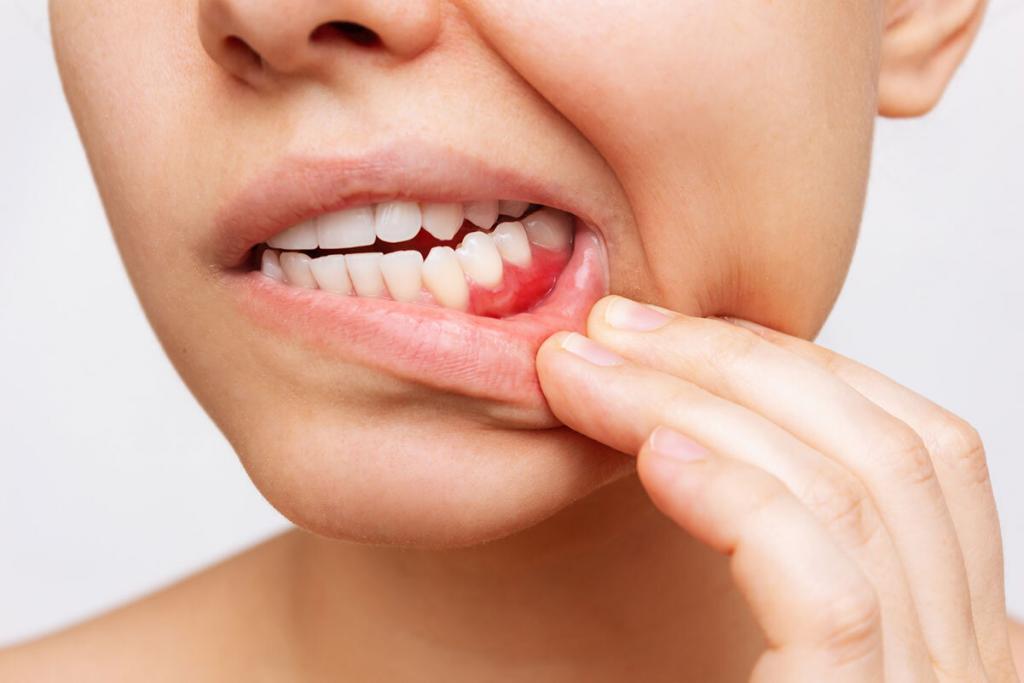Like the check engine light that comes on when there is a problem with your car, swollen gums indicate something is wrong.
Our gums play an important role in our oral health. Like the check engine light that comes on when there is a problem with your car, swollen gums indicate several different dental health issues. Swollen gums alert you that something is wrong.

Swollen gums are often sensitive, irritated, or painful. You may also notice that your gums bleed more easily when brushing or flossing. While these symptoms are not uncommon for many people, it’s essential to address the issue as soon as you detect it.
Here are some of the most common causes of swollen gums:
Gingivitis
Swollen gums are generally the first sign of gingivitis. Gingivitis is the first stage of gum disease and is the most common reason people develop swollen gums. The inflammation is the result of the accumulation of bacteria in plaque.
In its beginning stages, the symptoms of gingivitis are mild and will generally get better if you brush and floss. However, if it doesn’t get better with brushing and flossing, you need to visit your dentist for a checkup and cleaning. If you have gingivitis, you need to get treatment as soon as possible to keep it from progressing into periodontitis, a more severe form of gum disease. Severe cases that are left untreated can lead to tooth loss.
Infection
Swelling of your gums can indicate that you have a fungal or viral infection. Thrush is a fungal infection that can cause your gums to swell. If you notice a strange white rash in your mouth, contact your doctor so that you can get an antifungal medication. If you have the herpes virus, you are at a higher risk of contracting acute herpetic gingivostomatitis, a condition that causes gums to swell.
Vitamin Deficiency
If you are deficient in specific vitamins, it can affect your oral health and cause your gums to swell. Being low in vitamins B and C are the most common deficiencies that can cause your gums to swell. Malnutrition is not a typical problem but may be an issue for a person that is elderly or has other special needs such as autism or other disabilities.
Pregnancy
Pregnant women often experience gum swelling. Pregnancy hormones cause an increase in blood flow to the gums, which can cause swelling. Hormone changes can increase your risk of gingivitis and gum infections. When pregnant, it is essential to maintain good oral health and visit your dentist to help keep your mouth healthy.
How to Care for Swollen Gums
If you notice swelling in your gums, you can do a few things before making a dental appointment. However, these home remedies may not cure the underlying problem.
- Brush and floss gently to soothe gums and avoid additional irritation
- Use a saltwater rinse to clear away extra bacteria
- Drink more water
- Avoid drinking alcohol, smoking, or using strong mouthwashes
- Use a cold compress to reduce swelling and a warm compress to soothe the pain
Contact Your Dentist
If you continue to have swollen gums, schedule an appointment with your dentist. Contact The Dental Anesthesia Center today if you’re a caregiver for an elderly parent or a person with special needs.
We value our patient relationships, making it our priority to deliver the gentle dental care you deserve. We work hard to make you feel at ease by providing exceptional patient care in a relaxed, comfortable atmosphere.
Call Us Today
The first two board-certified Dentist Anesthesiologists in the state of Missouri.

